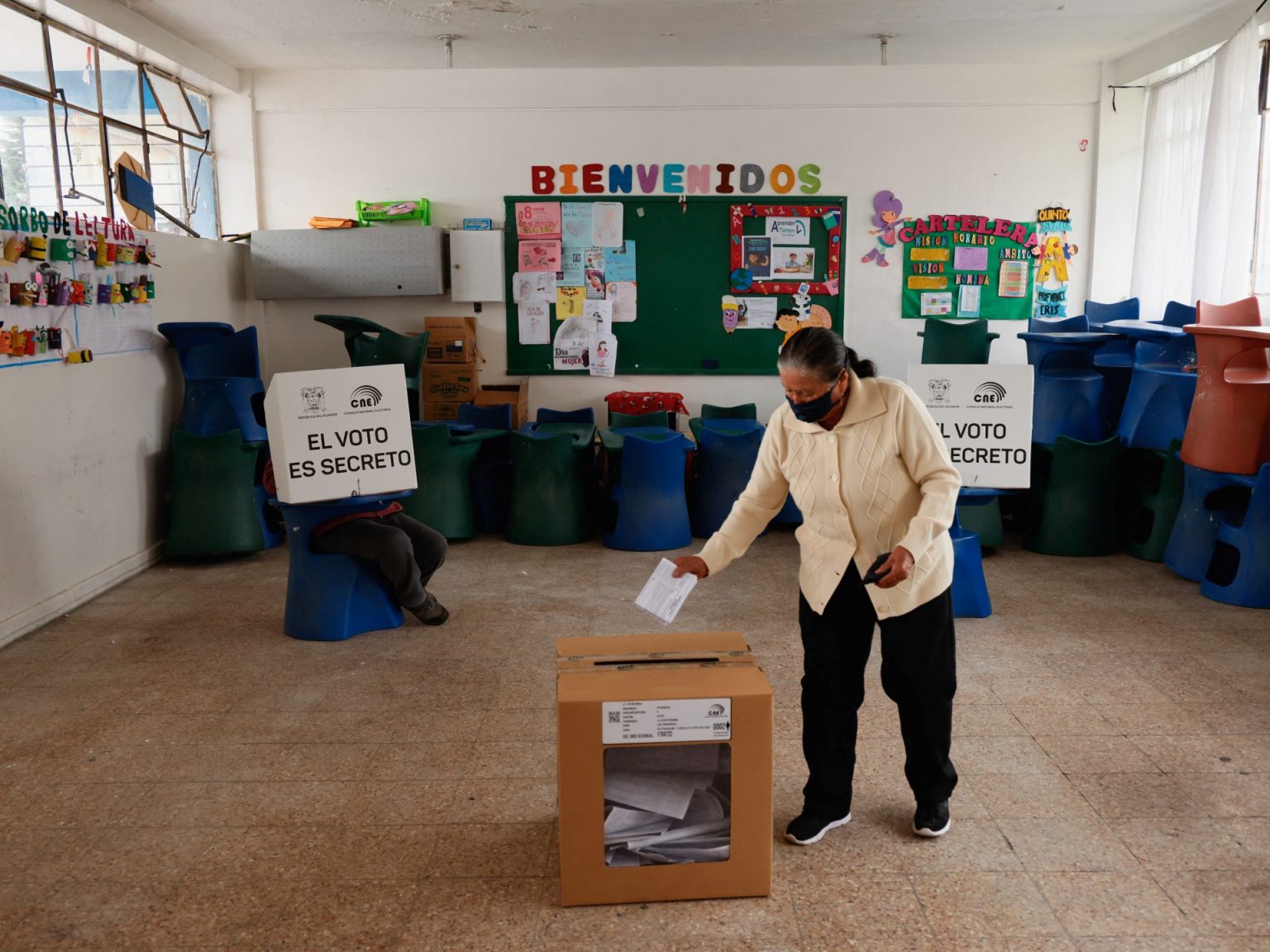In a recent referendum in Ecuador, citizens overwhelmingly voted in favor of tough new security measures proposed by President Daniel Noboa. The quick vote tally showed that 60 to 73 percent of voters supported the referendum, indicating widespread concern over rising violence in the country. The measures proposed by Noboa included expanding military and police powers, tightening gun control, imposing harsher penalties for terrorism, and facilitating the extradition of accused criminals. Additionally, prison sentences for convicted drug traffickers were set to be lengthened. Voters expressed a strong desire for the government to take decisive action to address the security situation, even if it meant making significant changes to the constitution.
The rise in violence in Ecuador has been attributed to gangs with links to transnational cartels using the country’s ports as a gateway for drug trafficking to the United States and Europe. Politicians and public figures have become targets of violence, with at least a dozen politicians being killed since January 2023. The referendum was seen as a pivotal moment in defining the country’s approach to fighting violence and organized crime. While the security-focused questions received a resounding “yes” vote, proposals related to labor regulations were rejected by voters. Noboa’s declaration of a state of “internal armed conflict” earlier in the year highlighted the severity of the situation, with criminal groups engaging in violent activities such as kidnappings and shootings.
The persisting violence, despite government efforts, has been described as a manifestation of narcoterrorism seeking to sow fear and instability in Ecuador. The recent killings of two mayors added to the sense of insecurity, with authorities pointing to the presence of criminal elements behind these acts of violence. The referendum vote reflected the population’s desire for a stronger response to curb crime and restore peace to Ecuadorean families. Noboa emphasized the importance of providing law enforcement with the necessary tools to combat criminal activities and ensure the safety of the population. The deployment of military forces to address the violence and chaos in the prison system underscored the gravity of the security situation in Ecuador.
The referendum turnout was significant, with millions of eligible voters participating to voice their opinions on the proposed security measures. While crime prevention was a central issue in the referendum questions, Ecuador also faced challenges related to corruption, energy shortages, and diplomatic tensions with other countries. The spike in Ecuador’s murder rate in recent years has raised concerns about public safety and the need for comprehensive measures to address the root causes of violence. The referendum outcome served as a reflection of the population’s demand for stronger security measures and a more robust response to organized crime and violence. The government’s commitment to enhancing law enforcement capabilities and cracking down on criminal activities was underscored by the referendum results, signaling a shift towards a more proactive approach to tackling security challenges in the country.













